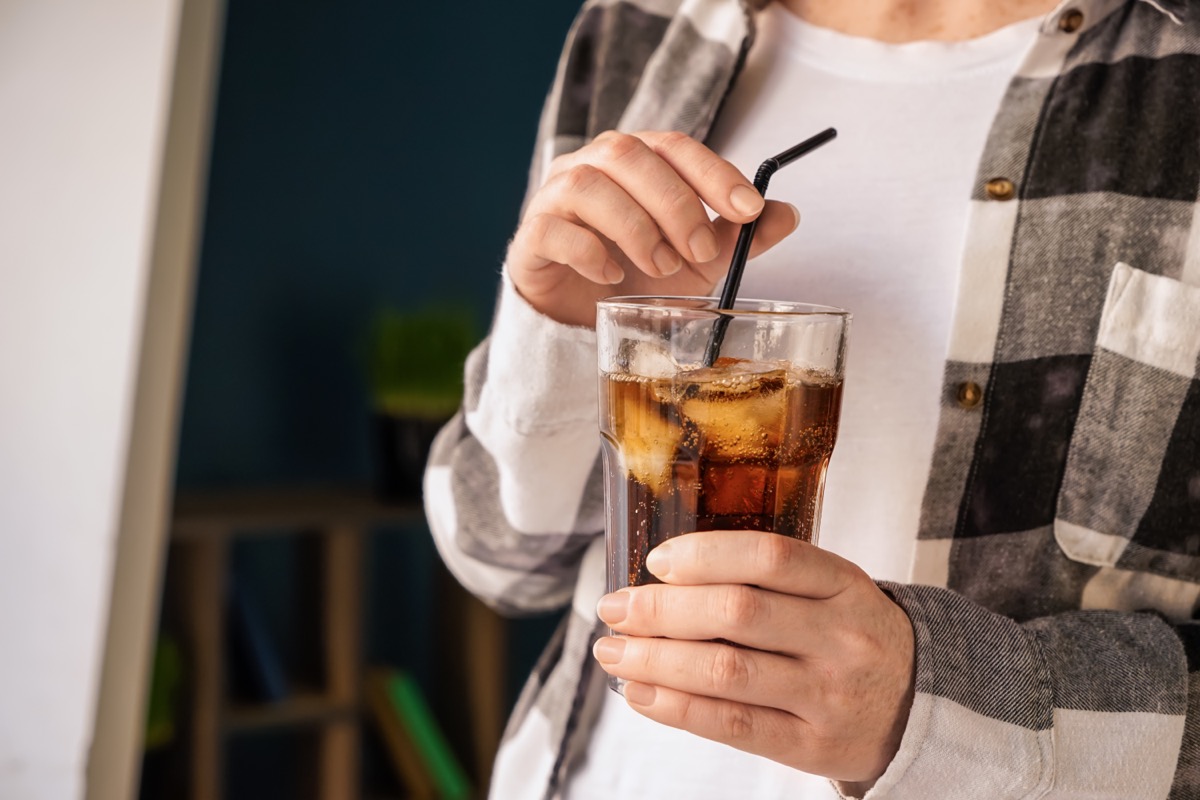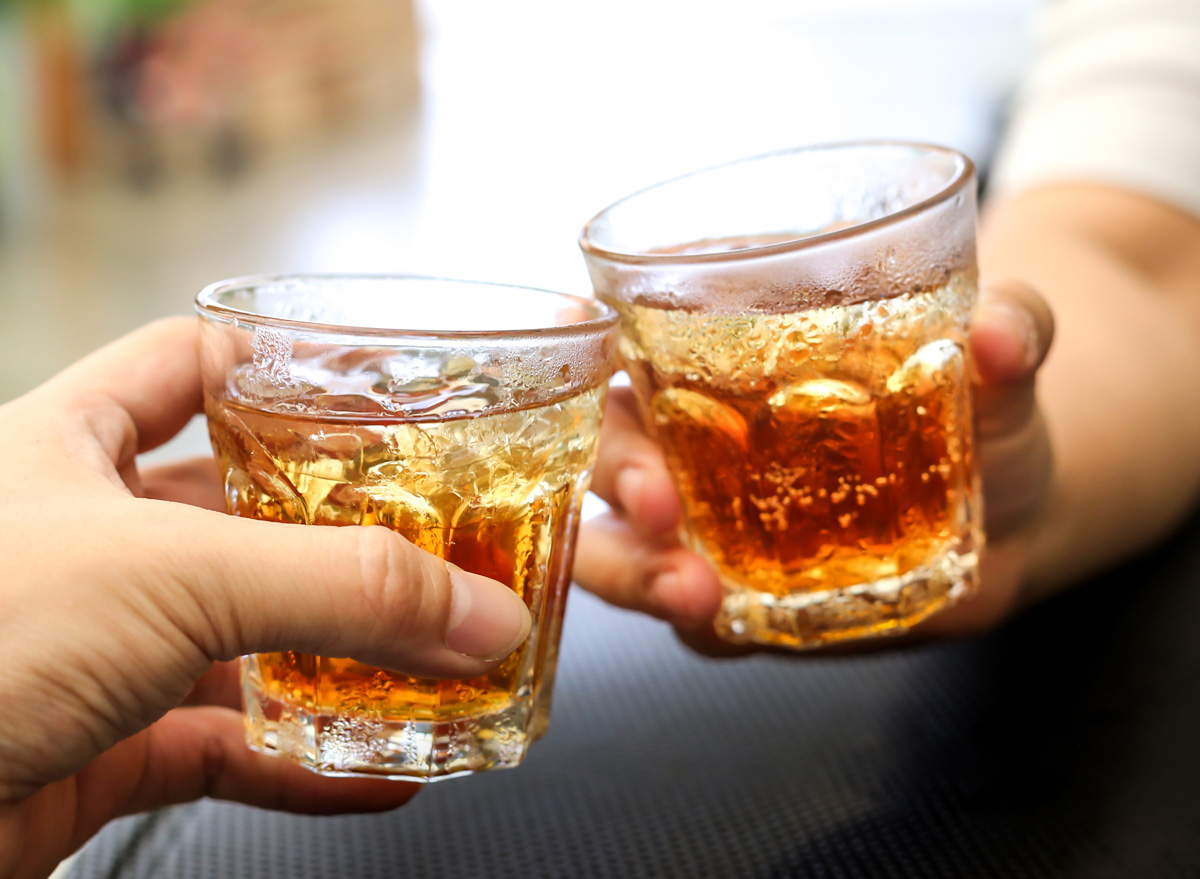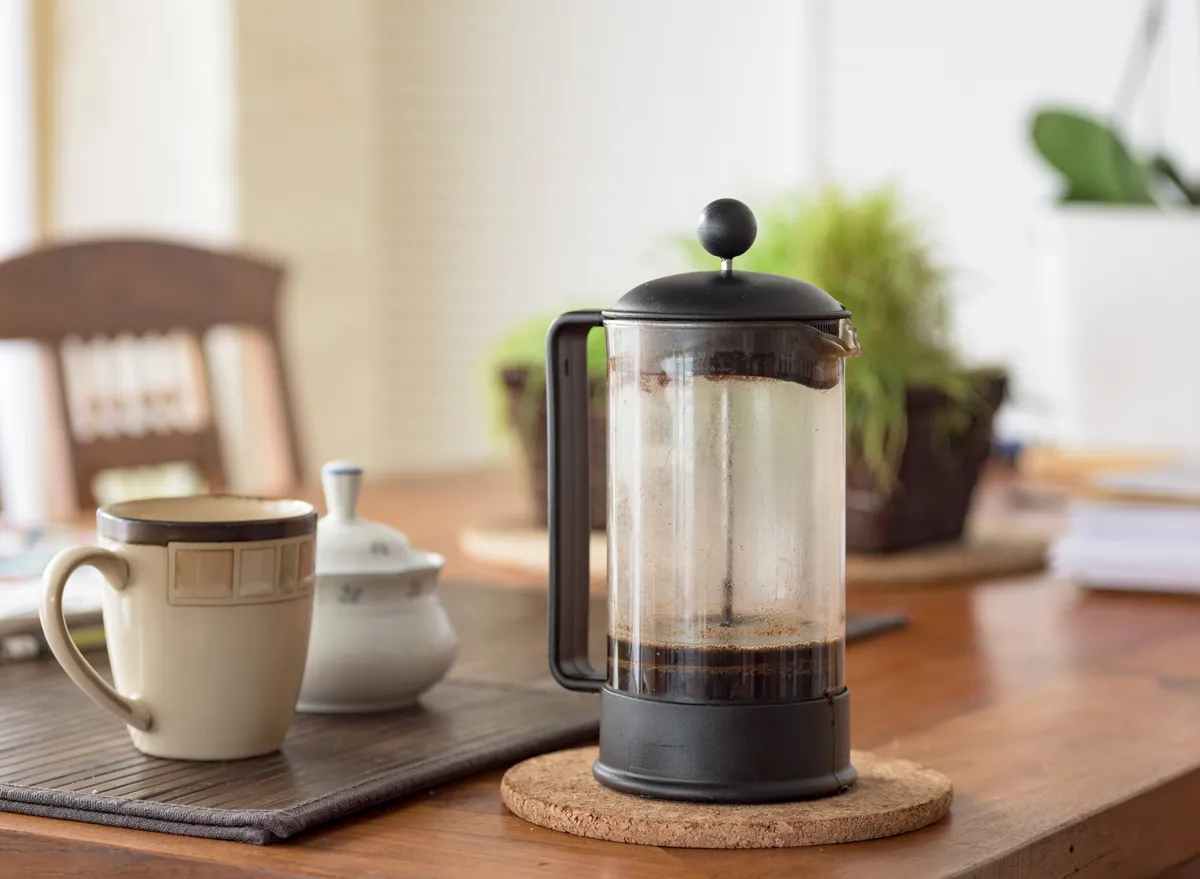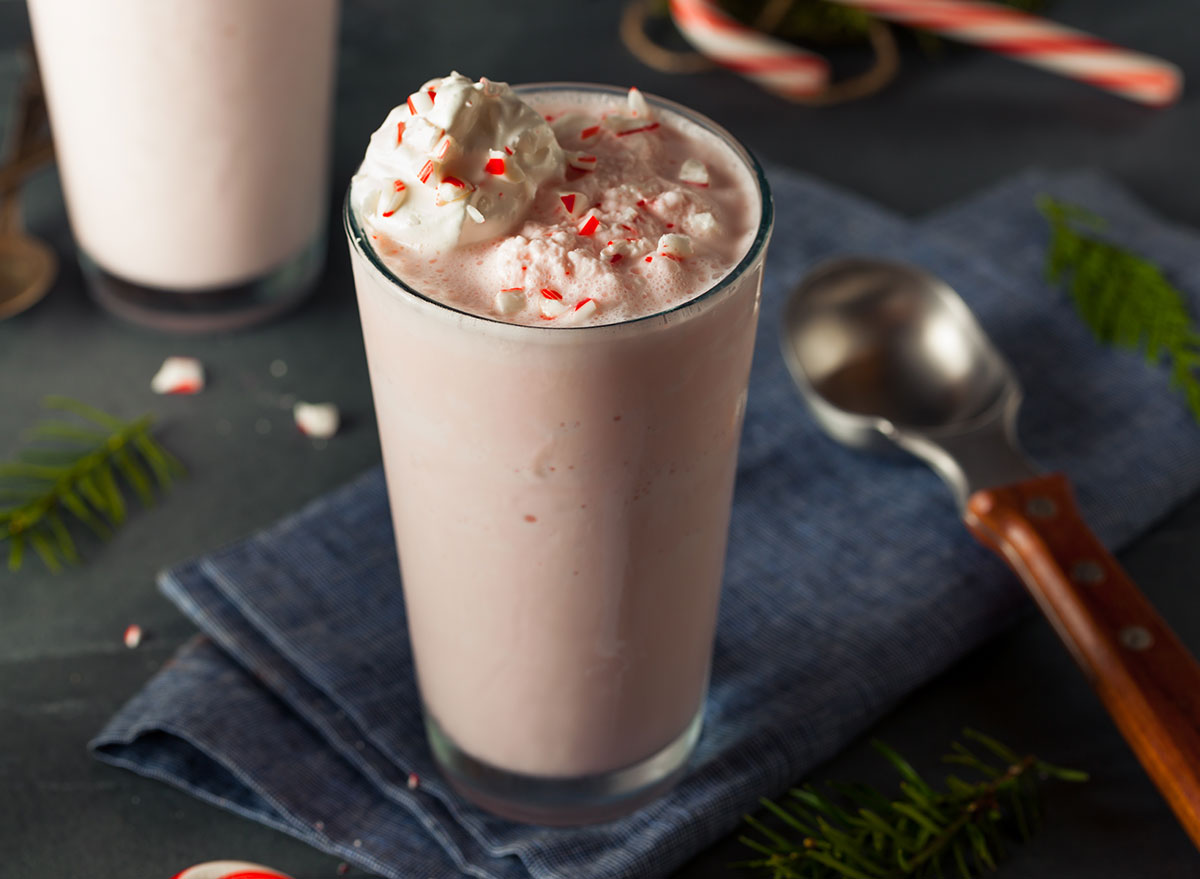Drinking Habits to Avoid If You Don’t Want High Cholesterol, Say Experts

Millions of Americans are living with high cholesterol, a condition that can increase your risk of heart disease, stroke, and early death. In fact, a whopping 38% of American adults have elevated cholesterol levels, according to the Centers for Disease Control and Prevention (CDC).
While lowering your consumption of high-fat foods and increasing your fiber intake may help keep your cholesterol levels in healthy territory, it’s not just what’s on your plate that could be contributing to your risk of high cholesterol. In fact, many of the beverages you drink every day could be putting you in harm’s way.
Before you take another sip, read on to discover which drinking habits you should stop now to avoid high cholesterol, according to experts. And for more possible ways to lower your cholesterol, check out these 15 Underrated Weight Loss Tips That Actually Work.
Drinking soda

If you want to lower your risk of developing high cholesterol, giving up soda is a good place to start.
“Sugary beverages are among the top beverage contributors to high cholesterol. One 12 year study involving 6,000 participants found that sugar-sweetened beverages were consumed more by those with high cholesterol than those with normal cholesterol in the study,” says Trista Best, MPH, RD, LD, a registered dietitian at Balance One Supplements, citing a 2020 study published in the Journal of the American Heart Association.
Drinking too much alcohol regularly

While having the occasional drink to celebrate a special occasion may not derail your health goals, regular alcohol use could be sending your cholesterol soaring.
“Drinking more than a moderate amount of alcohol per day may lead to increased cholesterol levels,” says advanced practice registered dietitian Becky Kerkenbush, MS, RD-AP, CSG, CD, FAND, president of the Wisconsin Academy of Nutrition and Dietetics. A study published in the journal Alcohol found that excessive drinking, whether occasionally or regularly, may increase LDL “bad” levels.
“Alcohol contains 7 calories per gram, which is close to the 9 calories per gram provided by fat. Carbohydrates and protein provide 4 calories per gram. If someone is drinking more than a moderate amount of alcohol daily, this can lead to excess calories and weight gain,” says Kerkenbush.
On the other hand, occasional red wine consumption may help lower LDL cholesterol and alcohol as a category has also been linked to increased levels of “good” HDL cholesterol when consumed in moderation. However, “If you don’t drink red wine, there’s no need to start for health benefits,” Kerkenbush adds, as there is no proven cause-and-effect link showing any heart health-related benefits from drinking any form of alcohol.
Drinking unfiltered coffee

Even if you’re not adding sugar and dairy products to your coffee, your preferred brew could still be having significant effects on your cholesterol levels.
“Non-filtered coffee, such as in French press, can raise your ‘bad’ LDL cholesterol—and fairly significantly if you drink a lot of it. This is likely due to coffee lipid compounds, such as cafestol, that are removed by a paper filter. A few cups of coffee can raise LDL-cholesterol by as much as 15 mg/dL!” says Nicole Harkin, MD, FACC, a cardiologist, lipidologist board-certified in cholesterol disorders, and founder of Whole Heart Cardiology.
“My advice? Stick with filtered coffee if you can,” Harkin adds.
Drinking milkshakes

Those milkshakes are doing more than bringing the boys to the yard—they may also bring your cholesterol levels into dangerous territory.
“Milkshakes, if consumed frequently, may increase LDL cholesterol and decrease HDL, or ‘good’ cholesterol,” says Angela Houlie, MS, RDN, CDN, founder and owner My Fruitful Body Nutrition PLLC. “Due to the high fat content of milkshakes, it’s better to keep these to a special occasion and go for a decadent cacao smoothie when you crave a sweet frozen beverage.”
For more great health tips delivered straight to your inbox, sign up for our newsletter!
Read this next:








